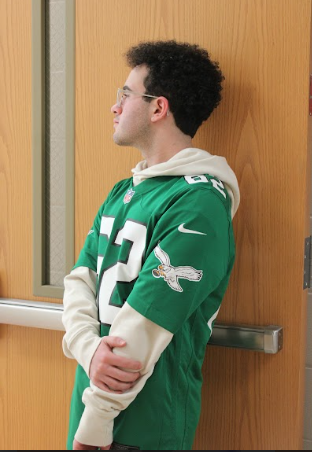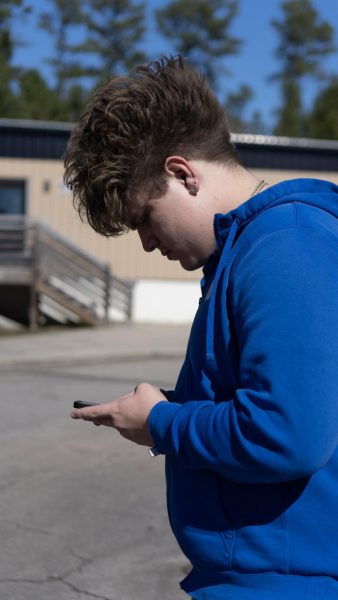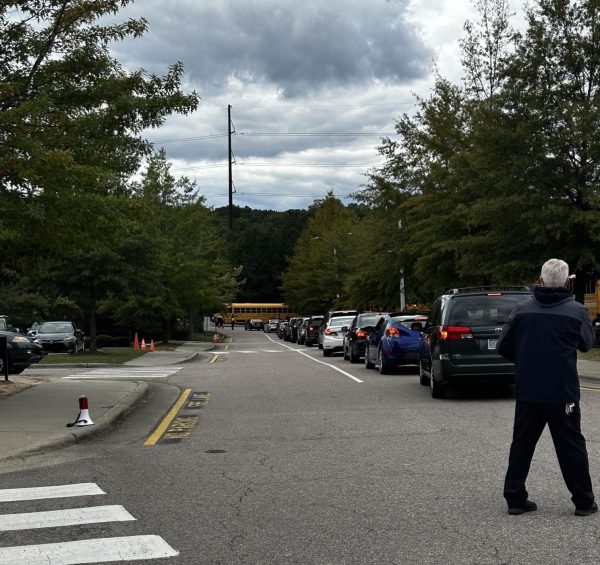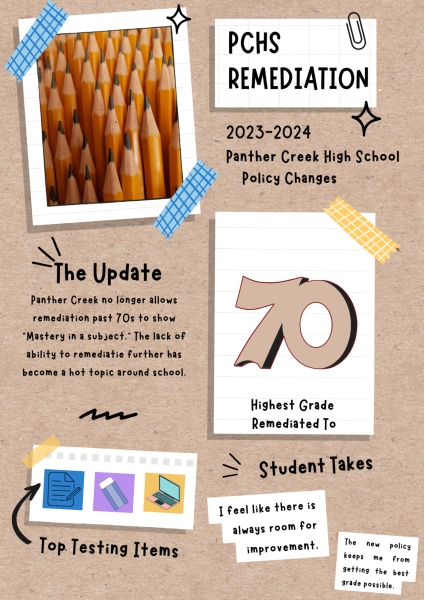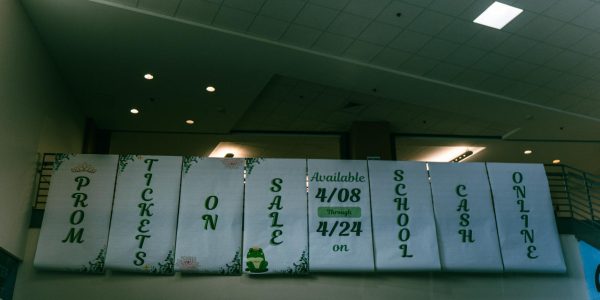Are Students Satisfied with Panther Creek?

How do you feel about Panther Creek? “Satisfied?” “Unsatisfied?” “Neutral or no opinion?” PCNN reporters were determined to find the answer by conducting a poll to see how Panther Creek students felt about their experiences. Please note that all charts on this page are interactive.
The poll, which ran from February 22nd to March 20th, 2015, had questions about rules and teacher opinions, classes and grading, and student services. Within each topic there were 3-4 general statements to which students could choose to strongly or somewhat agree or disagree. They could also choose “neutral or no opinion.” Out of 800 respondents, we received a variety of answers from many grades, genders, and races. Females respondents were in the majority, but not by too much. They made up 55% of our population sample, while male respondents accounted for 43% of our responses. We also received 10 responses from individuals identifying as belonging to non-binary genders, accounting for about 1% of our responses. There was an almost equal number of respondents from each class, too: about 28% of our respondents were seniors, followed by 27% freshmen, 24% juniors, and 22% sophomores.
In response to whether punishments appropriately fit acts of rule-breaking, the freshman and sophomore classes mostly felt the same way. However, opinions were more negative for the juniors, and severely more negative for seniors. In other words, older classes were more likely to disagree with punishments fitting acts of rule-breaking. This decline was more pronounced when neutral responses were ignored.
Our most interesting data is shown below. Responses to “I have witnessed a teacher showing favoritism” come neck-and-neck, while responses for “I have witnessed unfair disciplinary targeting by staff,” show a great disparity.
There was no correlation between respondents’ GPA, and whether or not they reported witnessing disciplinary targeting (r=-0.1). In other words, our data shows that one’s GPA has no effect on whether or not they reported witnessing disciplinary targeting. As a result, it is incorrect to assume that responses about disciplinary targeting were biased based on their GPAs (for example, students with lower GPAs were not more likely to report disciplinary targeting than students with higher GPAs, and vise versa). That being said, 80% of respondents reported witnessing what they considered “unfair targeting for discipline by staff.”
We can also draw a similar conclusion as to respondents’ opinions about fair rules, and whether or not they have witnessed teachers showing favoritism: there is no correlation between respondents’ GPA, and whether or not they witnessed favoritism, or their opinions about fair rules. That being said, there was an almost 50/50 split in respondents’ reports about teachers showing favoritism, and a majority of respondents agreed that rules were fair (70% agreed that rules are fair when ignoring neutral/no responses).
Surprisingly, most respondents reported witnessing unfair disciplinary targeting by staff, despite most of our respondents agreeing that most of the school rules are fair. This seems to imply that, although rules are agreeable to most, there is a flaw in the way they’re enforced by staff.
No significant race-related correlations were found in responses to any opinion-based questions.
When we numerically compared respondents’ opinions about counselor helpfulness and availability by class, we found that students felt worse and worse about their counselors as years went on. Freshmen had the highest opinions of their counselors availability and helpfulness, while sophomores had the second highest, followed by juniors and then seniors. This was a dramatic difference, too: freshman opinions about their counselors were more than twice as positive as seniors’ opinions. This decline became even more pronounced when neutral responses were ignored. However, this was still not a dramatic decline overall: the average counselor opinions tended to stay in the positive range.
Panther Creek students seemed to have generally positive opinions about their teachers. Most respondents agreed that their teachers were knowledgeable and open to using modern technology. However, there was a strong opposition to the idea that teachers assign more helpful work than busy work. Mouse over chart to see more information,
Interesting Data Tidbits
- Half of our respondents identified as white, with the next racial majority belonging to Asians or Pacific Islanders.
- Female Asians/Pacific Islanders were the demographic with the highest median GPA, while male black/African Americans had the lowest median GPA.
- On a scale of one (easiest) to five (hardest), about half of our respondents rated the rigor of their courses in the 4-5 range (more difficult).
- Only about 1 in 10 respondents felt that their grades reflected just what they’ve learned. Almost half of respondents felt that their grades reflected both what they’ve learned, and their effort.
Overall, most students seem to be satisfied with their experience at Panther Creek. As one of the most highly ranked public schools in the state, and with one of the highest graduation rates, it makes sense that students would have positive feelings about their school.
* When opinions were numerically compared, 2.00 and -2.00 were used for “Strongly agree” and “Strongly disagree” responses, respectively.
1.00 and -1.00 were used for “Somewhat agree” and “Somewhat disagree” responses, respectively. This is reflected in our opinion charts.


